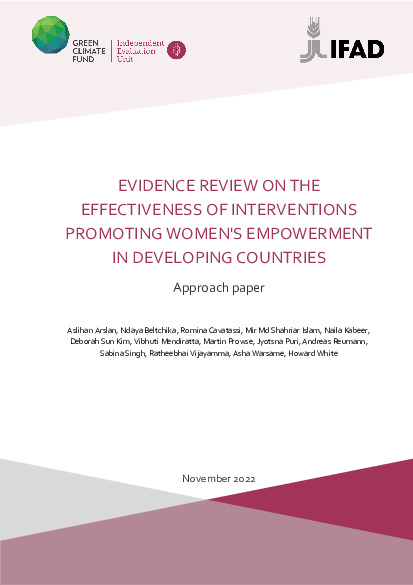Approach paper: Evidence review on the effectiveness of interventions promoting women's empowerment in developing countries

Download
English |
PDF |
991.66 KB
Approach paper: Evidence review on the effectiveness of interventions promoting women's empowerment in developing countries
This evidence review assesses what evidence exists regarding the effectiveness of interventions which seek to promote women’s empowerment. The approach paper details the inclusion/exclusion criteria such as the focus on causal studies. It also details the methods used for the search of academic and other databases and websites. In addition, it describes the strategy for data-collection and analysis.
Authorship
Aslihan Arslan, Ndaya Beltchika, Romina Cavatassi, Mir Md Shahriar Islam, Naila Kabeer, Deborah Sun Kim, Vibhuti Mendiratta, Martin Prowse, Jyotsna Puri, Andreas Reumann, Sabina Singh, Ratheebhai Vijayamma, Asha Warsame, Howard White
Cover date
November 2022
Document type
Other publication